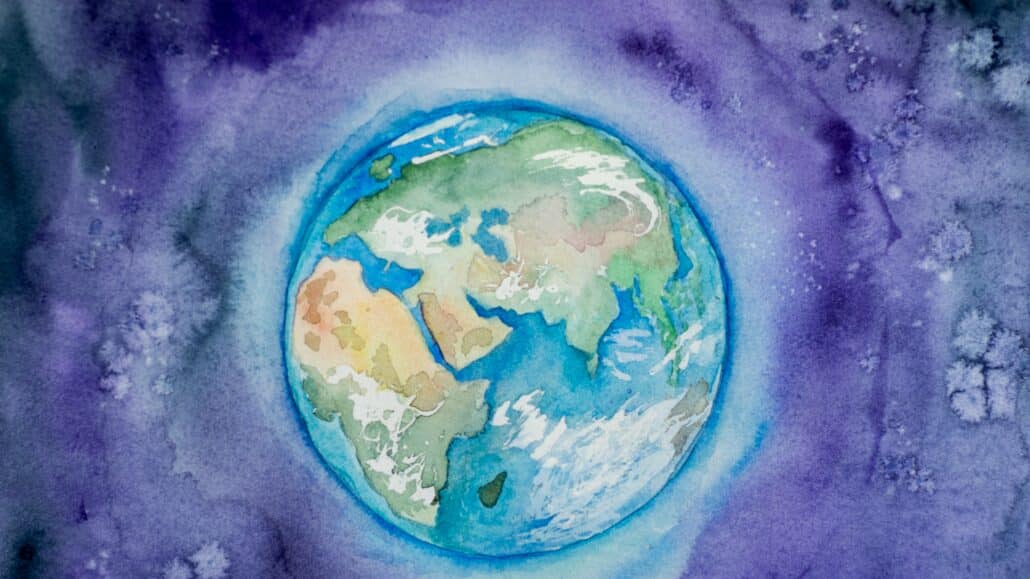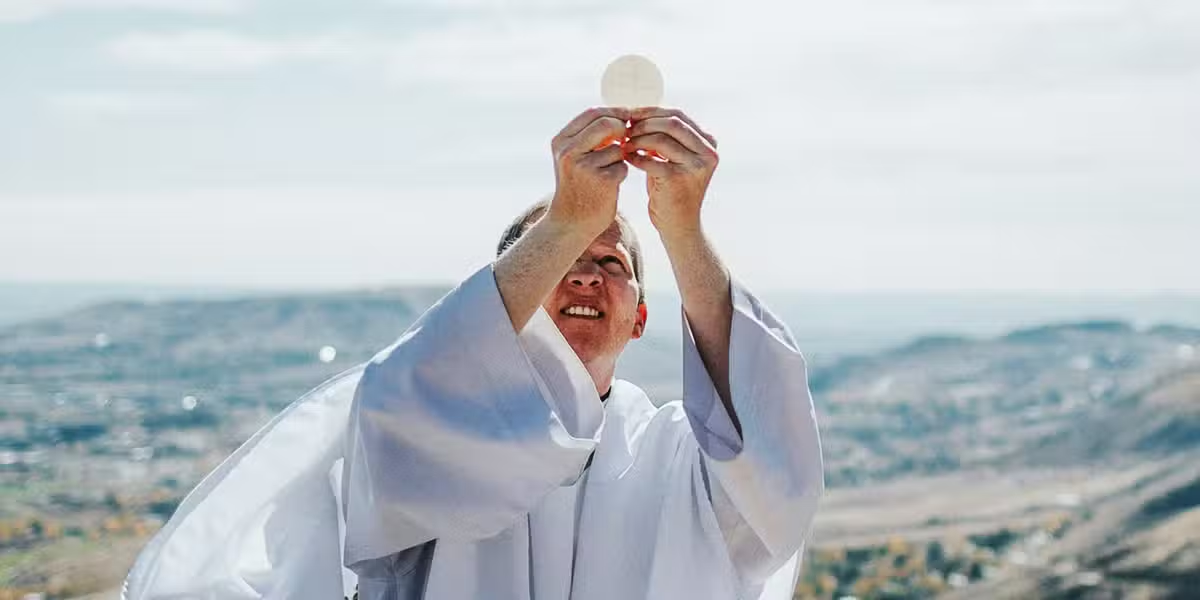One of the most common questions people have about the end of the world is, simply, “What will happen in the future?” Given all the signs from which we cannot escape, the questions to ask might be, “Are we approaching the end of the world? Is this what Jesus was talking about in the Gospel?”
Today you can watch TV specials that describe all kinds of world calamities. We know scientifically what effect pollution can do to weather and the diminishment of clean air; there are growing shortages of water worldwide, not to mention all forms of terrorism. Many of these futuristic predictions are based on scientific observations and remind us to take care of the earth, the environment and the sky above us. In truth, we cannot misuse the gifts of nature and not expect to pay a price for such misuse.
We also see more natural disasters, though it would be wrong to believe that God sends tornadoes, hurricanes and tsunamis. Those are indeed natural to the earth’s makeup, and an earthquake in the middle of nowhere would make little difference. It’s when it hits populated areas that there is great suffering. Still, we continue to hear predictions of an earthquake that will hit the West Coast of the United States. Experts are very emphatic that it is not a question of if, but when. But people still live there.
End of World Predictions
I doubt there was anyone who was unaware of the most recent prediction by Pastor Harold Camping who stated the rapture and the end of world would happen on May 21, 2011. When told that someone else predicted the end in 2012, he laughed and said there was no scriptural evidence of that, calling the prediction a “fairy tale.” Very few people, it seems, took Pastor Camping seriously.
There is now another prediction based on the ancient Mayan calendar which runs out on December 21, 2012. But predictions of the end of the world go back thousands of years, and usually the end was linked to a key time in the calendar. Even the early Christians believed that Jesus would come back at the turn of the century. St. Paul himself had to reconsider and realize that his work and that of the whole Church was really just beginning.
When the end of the first millennium approached, it also was seen as an “end time.” Some early saints predicted the end of the world. For example, St. Clement thought time would run out about 60 A.D.; Martin of Tours thought 400 A.D. would be the end. And it is not uncommon for people to believe that society can’t get any worse and that surely God must be ready to end it all.
In our own time, we remember when, in 1999, we approached the 21st century and waited for the year 2000. There were also similar end-time predictions. Hal Lindsey, author of the famous book The Late Great Planet Earth, predicted the end in 1980 and has had to revise his dates every 10 years or so. Pat Robertson, the television preacher, said the end was coming in October or November of 1982. He, too, has had to make several revisions each decade.
In defense of many who make end-time predictions, their motivation is to get people to convert and repent their lives. But that is what the Gospel has been about over these past 2,000 years.
And if we are tempted to ask that very same question, “Lord, when will the end come?” as did his apostles (Matthew 24:3), we have Jesus’ own answer, and that should settle it. He said, “Of the day and hour, no one knows, neither the angels in heaven, nor the Son, but the Father alone” (24:36). Strange, then, that people would not understand that no one can really make that prediction. He described signs that are supposed to be true at the end of time, but in every age, people of the time saw the corruption and suffering in the world and determined those were the signs Jesus meant. Yet the world has always continued on.
How to Prepare?
Since we don’t know the exact time when Jesus will return, we must not presume that it will be anytime soon. The universe is about 14 billion years old; earth is about four billion years old. Earliest microforms of life go back about three billion years. Animal life forms go back 557 million years, and human life is estimated to go back to 100,000 to 150,000 years ago. Given the age of the universe, you begin to see how infinitesimal the time of man is on earth. Right now science is exploring the Milky Way to see if there are any forms of life on other planets. In fact, it may be hard to believe, but God may have plans for human life to continue for tens of thousands of years—even millions. We just don’t know.
What we do know is that God is our creator. He creates out of love. Who can surmise what God might have planned for future centuries? We dare not take Scripture to be a prediction of how long God’s creative power will be at work. Someday Jesus will return; that is for sure. But when? Only God knows. When we consider our own lives, we need to live day by day—even moment to moment. And what is so wonderful is that Jesus told us to love God and love one another. It is the perfect direction.
Jesus told us not worry about the end time of the world; all we need to do is live our faith from day to day, from moment to moment. There are millions of people who have no idea of his simple value system as a guide for their lives. We are blessed with our faith to know the answers to the most important questions of our lives. God loves us; Jesus died for us. He teaches us the truth about life and death because he is the “way, the truth and the life.”
So when we hear dire predictions of the end of the world, we need not run around in circles, which accomplishes nothing. We simply have to give ourselves to the Lord and say often, “Lord, I love you.” We’ll be just fine.








